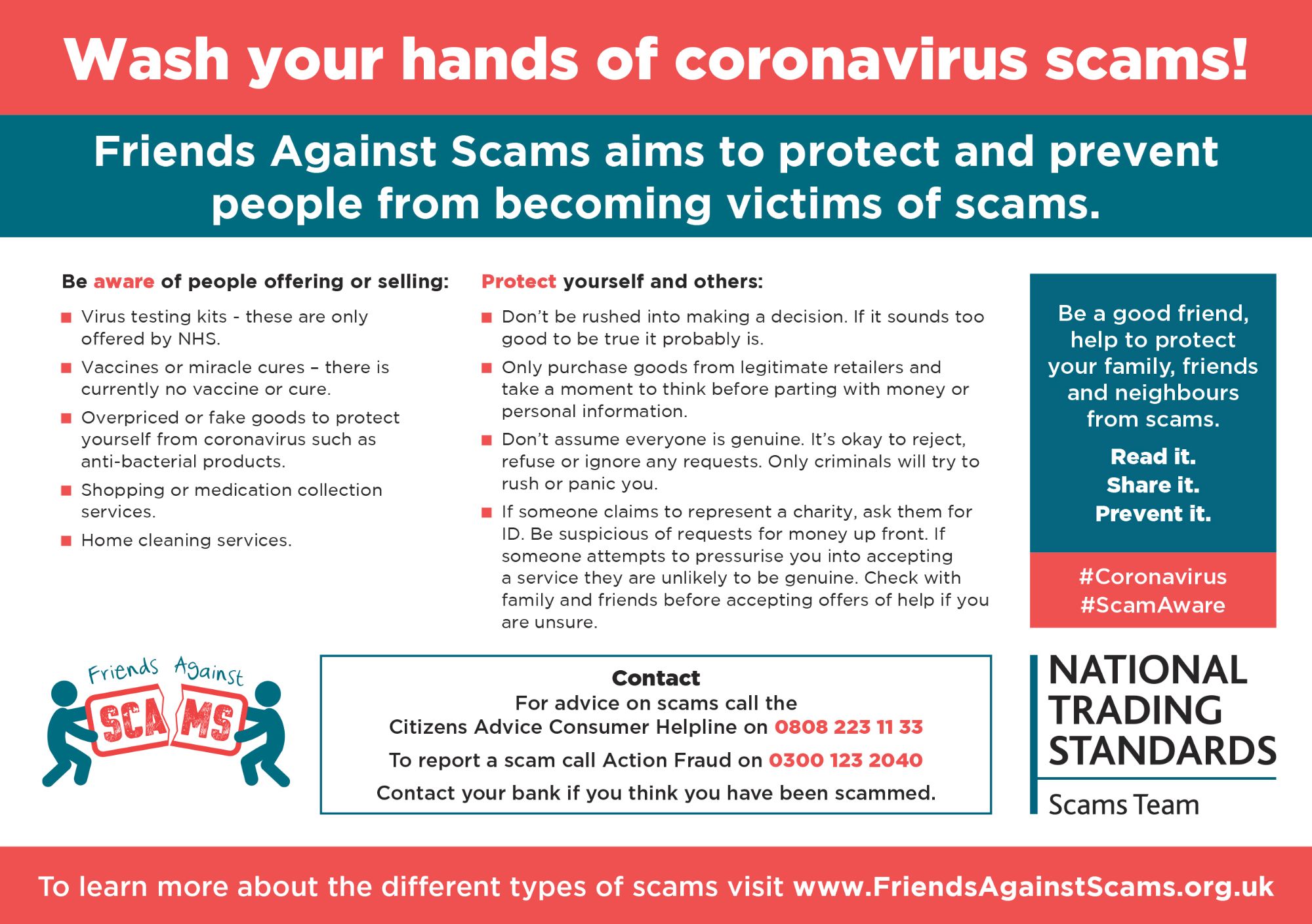Guidance on scams and misinformation
Scams and misinformation are a part of modern life and, bearing in mind the current situation, have the potential to cause great damage and distress.
- Scams are proliferating - please be extra careful before clicking on any links.
- Misinformation and hoaxes are flourishing in this environment and can spread faster than a virus Please check and verify before sharing. See Steve's unpatented advice on sharing 'with all your friends' below.
Here is a link to the World Health Organisation website's 'Mythbusters' page.
and Notts police have issued this alert - https://www.nottinghamshirealert.co.uk/da/358355
advice on scams
Theer has been a proliferation of scams and misinformation during the Covid-19 outbreak.
Friends against Scams has been set up by the National Trading Standards office, in conjunction with Citizens Advice and Action Aid. The advice opposite has been verified and here is a link to their website https://www.friendsagainstscams.org.uk/
Here also is a link to Nottinghamshie Council's guidance on the scams - https://www.nottinghamshire.gov.uk/care/coronavirus/covid-19-and-scams
And more detailed advice from the council is in this document.
Suspect emails can be reported via this email address - not sure what happens though - [email protected], run by the National Cyber Sercurity Centre (NCSC) - https://www.ncsc.gov.uk/guidance/suspicious-email-actions.
steve's un-patented advice on 'sharing with all your friends'
Using Social Media, false information can spread faster than a physical virus. Now more than ever it is important to check anything we see, especially before 'passing it on to all your friends'.
How many of Facebook posts ending like that have you seen? Lots? How many of those have been followed up with a "sorry guys, that was a hoax, my bad, please pass THIS on to anyone you shared it with". I've never seen such a retraction myself.
Yet virtually all such messages turn out to be hoaxes - lies. So please, before sharing information:-
- Check where it really came from originally - ask "who's friend said this originally?"
- Verify via other sources, either official or sites such as Snopes or Hoax Slayer
- Think whether it is really worth passing on
- Avoid cut and paste if possible. This breaks the audit trail to check later (think contact tracking in Coronavirus terms)
- Assure anyone you've shared it with that you have verified it, including the orginal source and include any limitations (see below for an example)
- IF it turns out to be false, share that just as energetically and tell everyone to do the same. Overcome your shame - no blame culture!
And, by the way, all this is Steve's own work, based on years of working with computers and the internet but with no formal qualification apart from membership of the British Computer Society. So if anyone knows a better source of advice on this subject, let me know and I'll update this advice. See also links below.
